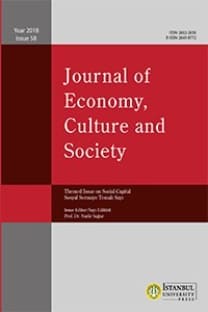PROTESTAN MİSYONERLER VE MİLLİ DEVLETLERİN DOĞUŞU: ROBERT KOLEJ VE BULGAR MİLLİ DEVLETİ ÖRNEĞİ
Misyonerlik, bir din yayma etkinliği olarak, Hristiyanlığın öte dünya algısını yani Tanrı’nın Krallığı’nı henüz benimsenmediği, hatta tanınmadığı dünyalara taşınma çabası olarak ifade edilebilir. Bununla birlikte misyonerlik çalışmalarının bir kültür, ideoloji, hatta siyaset aracı olarak görülmesi mümkün olan yönleri de vardır. Misyonerlik yeni bir olgu olmamakla birlikte, bu hali ile modern devlet olgusunun geleneksel toplumlara yaygınlaştırılmasının da bir aracıdır. Protestan-Evanjelik misyonerlik ise ulus devletlerin ortaya çıkmasında 19. Yüzyıl ortalarından itibaren Balkan toplumlarında hayli işlevsel bir ayrıştırma ve ulusal kimlik kazandırma aracı olmuştur. Din adamlarının organize ettiği Protestan-Evanjelik misyonerliğin eğitim kurumları aracılığı ile yürütüldüğü ve yalnız Balkan toplumlarını hedef almadığı; Hindistan gibi istisnalar göz ardı edilmeksizin “millet” sistemi altında yaşayan Katolik, Ortodoks ve Gregoryen Hristiyanlara ve Müslüman toplumlara da yöneldiği görülmektedir.Misyonerlik çalışmalarının “yeni” dünyadan “eski” dünyaya yöneldiği 19. Yüzyıl; Sanayi Devrimi, Aydınlanma, Rönesans ve Reform hareketlerinin sonuçlarının da güçlü hissedilmeye başlandığı geçişler ve değişimler dönemidir. İmparatorlukların, hanedanların ve çok uluslu toplumların yeni kimlikler ve yeni siyasal yapılar etrafında örgütlendiği bu dönem öte yandan yenidünya (Amerikan) değerlerinin eski dünyaya (Avrupa ve Asya) yayılmaya başladığı dönemdir. Bu çalışmada, üstteki satırlarda ifade edilen çerçevede “millet” sistemi etrafında çok dinli ve çok kültürlü Osmanlı toplumunun siyasal merkezi olan İstanbul’da Evanjelik Protestan misyonerlerin kurup, işlettiği Robert Kolej ve bu kolej etrafında 19. Yüzyıl boyunca yürütülen eğitim-misyon çalışmalarının Bulgar milletini ve Bulgaristan’ın ulus devletini üretmesi ele alınacaktır.
Anahtar Kelimeler:
Misyonerlik, Evanjelizm, Robert Kolej, Bulgaristan, Osmanlı, Ulus-Devlet
PROTESTANT MISSIONERS AND EMERGENCE OF NATION-STATES: CASE OF THE ROBERT COLLEGE AND THE BULGARIAN NATION STATE
Missionary activity as a religion spread, can be expressed as an attempt to move the Christianity perception (Kingdom of God), that to the world that not adopted yet. However, missionary works have also some other aspects that can be seen as a culture, an ideology, or even as a political tool. Missionary is not not a new phenomenon, but is a new mean to extending the form of the modern nation-state to traditional societies. The Protestant- Evangelical missionary, in the emergence of nation states, since the 19th century, has been a quite moderate tool in the seperation of the Church from national idenitites in Balkan socieites. Organized by the clergy of the Protestant-Evangelical missionary conducted through educational institutions and communities to target not only the Balkans; but also exceptions, such as India’s pursuit of a “nation” Catholics living under the system (sometimes Orthodox) seems directed to the Christian and Muslim communities. The 19th century, during wihch Missionary activities go towards the ancient world from the new world, is also a transformation and transition period in which the consequences of the Industrial Revolution, the Enlightenment, the Renaissance and the Reformation were perceived strongly. This period is an era when empires, dynasties and multiethnic societies began to organize around new identities and new political structures while the values of the new world (American) had begun to spread to the old world (Europe and Asia). In this paper, within the framework expressed in the upper line, the role of the educational missionary activities around Robert College in the 19th century and Robert College itself, a high school founded by the Evangelist Protestant Missionary in Istanbul which is the center of the multicultural and multireligious Ottoman society, in the establishment of the Bulgarian national identity and national state will be analyzed.
Keywords:
Missionary, Evangelism, Robert College, Bulgaria, the Ottoman, the Nation-State,
- ISSN: 2602-2656
- Yayın Aralığı: Yılda 2 Sayı
- Başlangıç: 1960
- Yayıncı: İstanbul Üniversitesi Yayınevi
Sayıdaki Diğer Makaleler
TÜRK YURDU DERGİSİ’NDE MEFKÛRE ÜZERİNE TARTIŞMALAR
TÜRKİYE’NİN ANA SİYASAL-DÜŞÜNSEL EKSENİNDE DEĞİŞME EĞİLİMLERİ(1938-1960)
PRENS SABAHADDİN İLE İLGİLİ DEVLET KAYITLARI ARASINDA BULUNAN RESMİ BELGELER
BAYKAN SEZER'İN METİNLERİNDE ÉMILE DURKHEIM ELEŞTİRİLERİ
TÜRK SOSYOLOJİSİ ÜZERİNE KISA BİR BAKIŞ
TÜRK SOSYOLOJİSİNDE TEORİ VE YÖNTEM: AİLE SOSYOLOJİSİ ÖRNEĞİNDE
1938-1980 DÖNEMİ TÜRKİYE’DE SOSYAL YAPI VE DİNAMİKLERİ
PROTESTAN MİSYONERLER VE MİLLİ DEVLETLERİN DOĞUŞU: ROBERT KOLEJ VE BULGAR MİLLİ DEVLETİ ÖRNEĞİ
TÜRKİYE’NİN ANA SİYASAL-DÜŞÜNSEL EKSENİNDE DEĞİŞME EĞİLİMLERİ (1960-1980)
